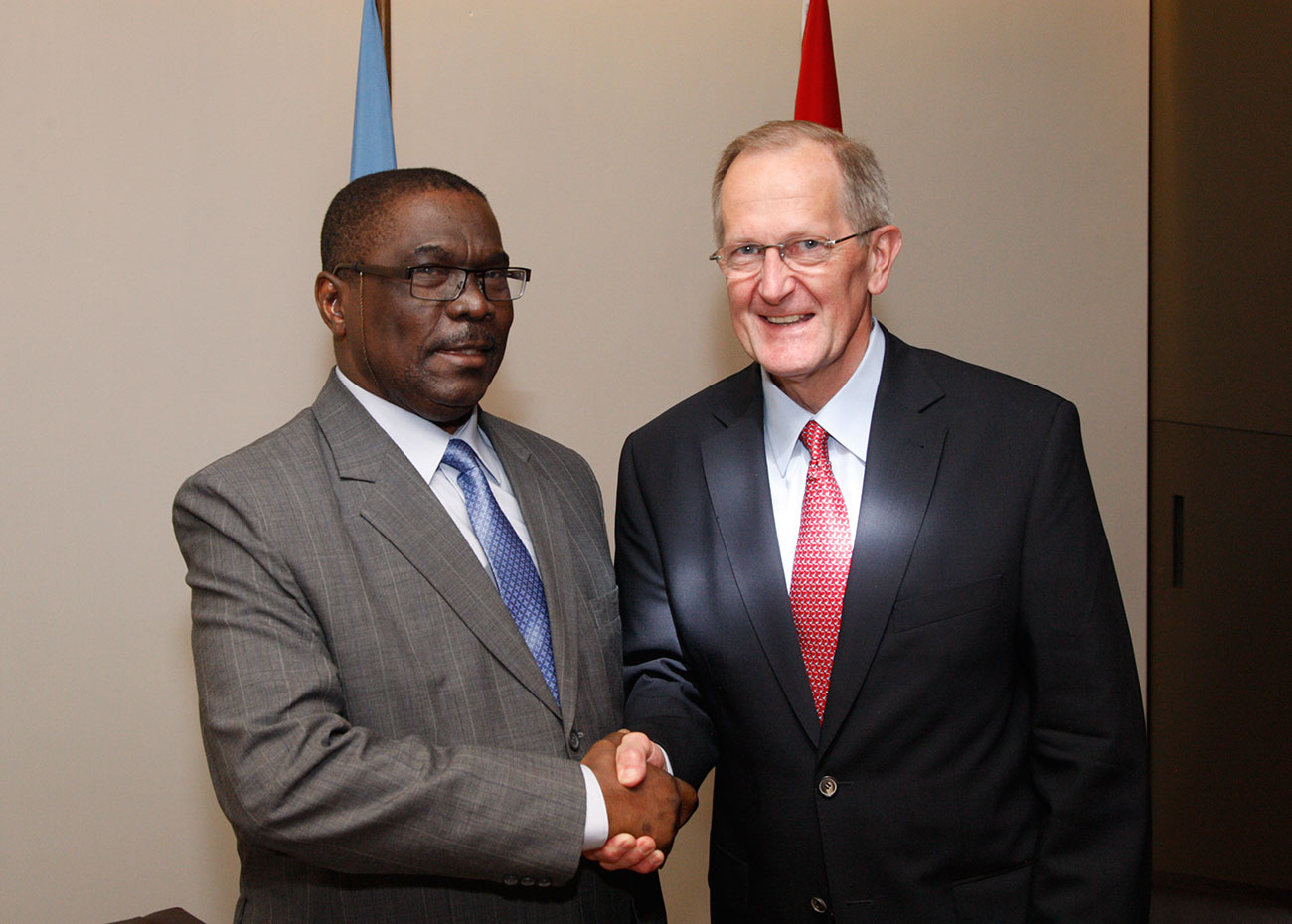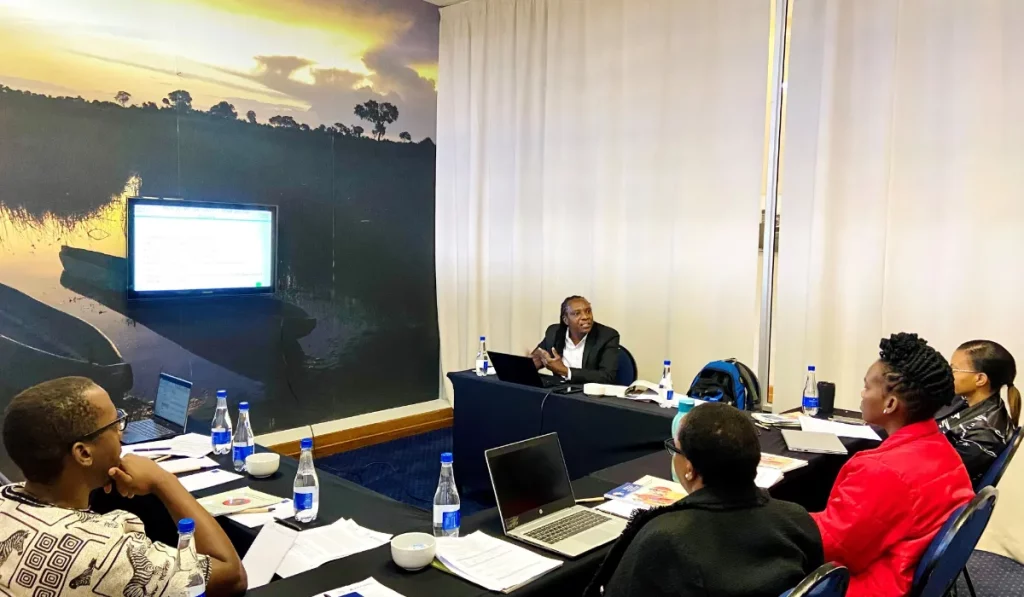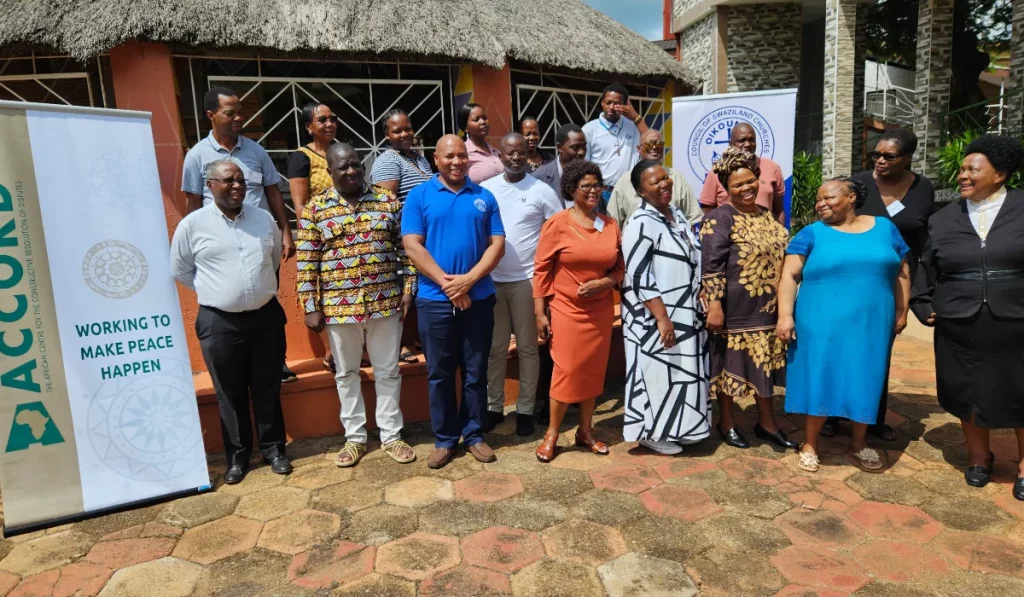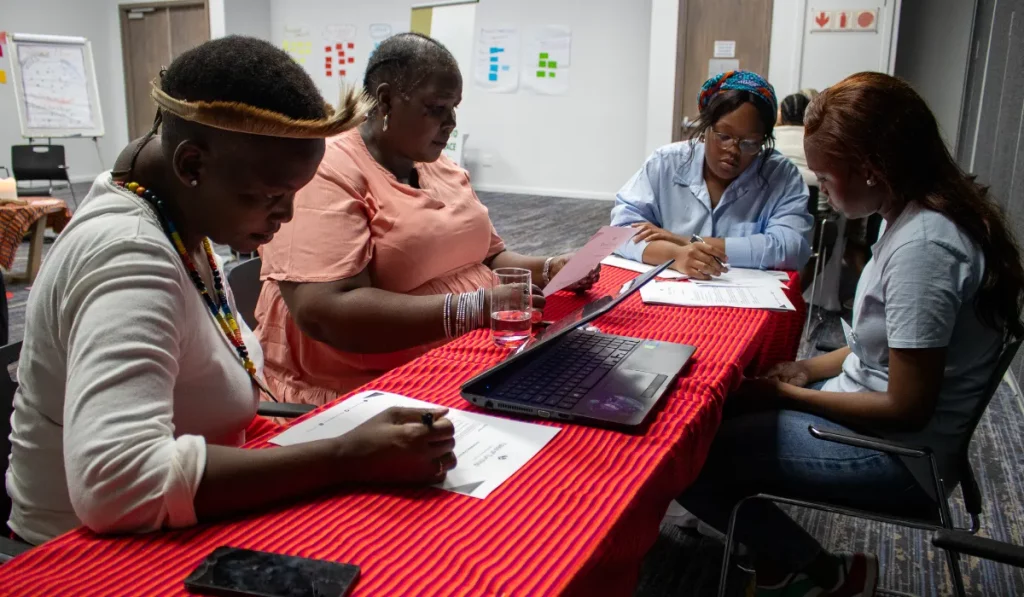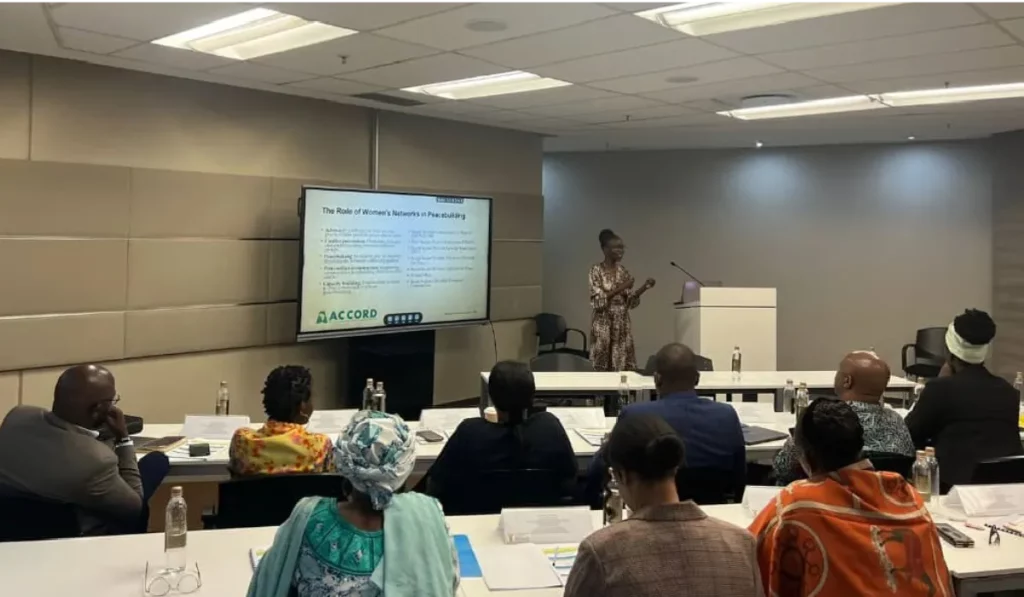The Training for Peace in Africa (TfP) Programme at ACCORD (TfP/ACCORD) was invited to participate and contribute in a workshop organised by the civilian component of Economic Community of Central African States (ECCAS) Standby Force, the Force Multinationale de l’Afrique Centrale (FOMAC) in French.
In line with ACCORD’s work on building civilian capacities to support multidimensional peace support operations in Africa, TfP/ACCORD honoured this invitation from FOMAC held in Burundi, Bujumbura on 3-5 April 2014. TfP/ACCORD was represented by Mr Adelin Hatungimana from the ACCORD Burundi office. A draft of the concept of the civilian component of the FOMAC was first developed as an internal process. The outcome of this internal process was further discussed during this second workshop, a platform that sought to strengthen the draft document on the civilian component of the FOMAC.
As the continent continues to experience conflict in the various regions, more recently in the Central African Republic, more focus has been directed to increasing the continent’s responsibility and capacity to resolve its own peace and security challenges. The last decade has witnessed the steady institutionalisation and progress of the African Peace and Security Architecture (APSA) and as such, the African Standby Force (ASF) and the regional standby arrangements in the five regions have gained momentum. As part of its strategies for preparing for the Full Operational Capability (FOC) in 2015, FOMAC brought together experts, partners and representatives of ECCAS member states to further contribute to the draft document prepared internally on the civilian component of FOMAC. The variety of stakeholders allowed for a diverse range of views on multidimensional peace support operations with reference to the central African region.
TfP/ACCORD’s focus on strengthening its support to RECs is opportune as each of the five regional arrangements seek to enhance their capabilities ahead of the FOC in 2015. ACCORD was therefore invited – based on its long standing expertise in supporting the civilian capacities in peace support operations – to participate in the discussions and deliberations on the best practices for mobilising and developing civilian capacities within FOMAC. During the workshop, the participants also discussed the challenges and issues in the operationalisation of the African Standby Force and their impacts on the Civil Component.
The output of the workshop was a document with strategies for building the civilian capacities of FOMAC and strategies towards the adoption of the document by all Member States of ECCAS. The ultimate goal of the workshop, therefore, was a final-text concept document of the civilian component of FOMAC to be submitted to ECCAS for approval. Further, the workshop provided ACCORD with an understanding of the current capacities of FOMAC as well as their needs as they seek to achieve FOC by 2015.
The workshop was in line with the TfP/ACCORD’s support to African states, Regional Economic Communities (RECs), the African Union (AU) and United Nations (UN) in significantly improving their civilian capacity to prepare, plan, manage and monitor multi-dimensional peace operations in Africa.
The Training for Peace (TfP) in Africa Programme is an initiative funded by the Norwegian Ministry of Foreign Affairs.

